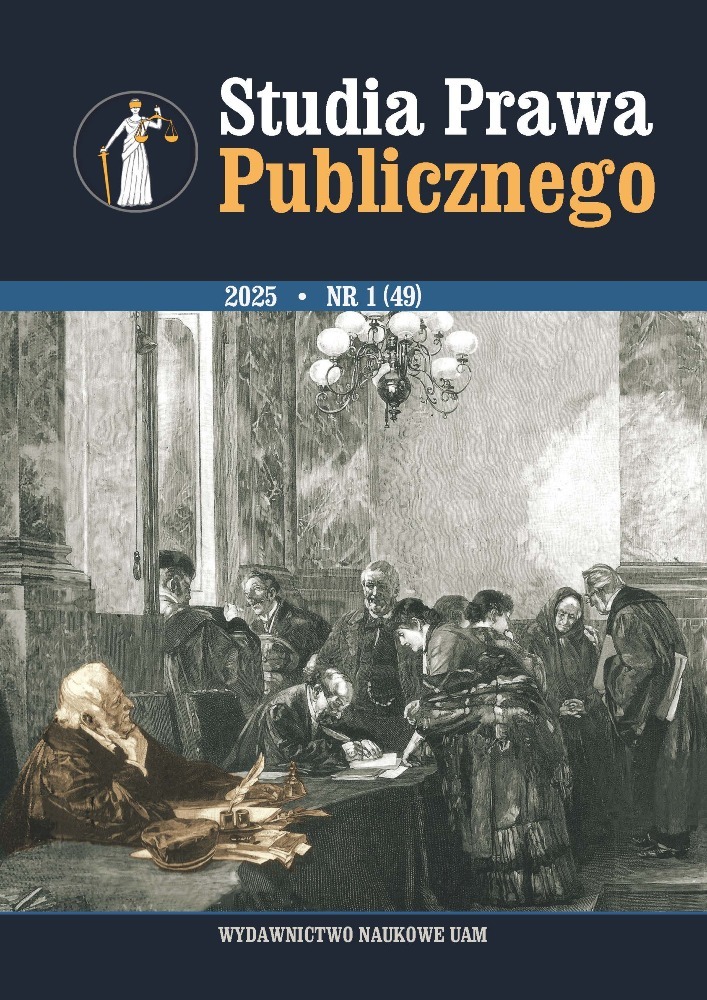Abstrakt
The rapid progress in the field of artificial intelligence, which is particularly evident to the public in the form of the emergence of large language models (LLMs) like ChatGPT, now allows the technology to be used in the field of legal services. Consequently, a growing number of lawyers are using AI to assist with legal research or drafting legal documents. This is associated with a wide range of legal issues, ranging from the regulation of legal service providers and the contractual duties of lawyers vis-à-vis their clients to the professional duties of lawyers that derive from professional codes governing the legal profession. This article shows that the professional duties of German lawyers may be affected when AI is used. After providing the reader with a general overview of the legal challenges associated with AI use by lawyers, as well as the development and current state of the legal landscape imposing German lawyers with professional duties, the article concentrates on the duty to remain independent, confidentiality obligations, in addition to the general duty to act faithfully. It also gives an overview of possible sanctions in cases of non-compliance with professional duties. By summarizing the findings, the article emphasizes remaining legal uncertainties, advising German lawyers to exercise caution when turning to AI for assistance.
Bibliografia
Briggs J., Kodani D., The Potentially Large Effects of Artificial Intelligence on Economic Growth, “Goldman Sachs Economics Research,” 26 March 2023, https://www.key4biz.it/wp-content/uploads/2023/03/Global-Economics-Analyst_The-Potentially-Large-Effects-of-Artificial-Intelligence-on-Economic-Growth-Briggs_Kodnani.pdf (accessed: 21.01.2025).
Bundesrechtsanwaltsordnung, ed. D. Weyland, 11th ed., München 2024.
Bundesrechtsanwaltsordnung, eds. M. Henssler, H. Prütting, 6th ed., München 2024.
Busse F., Anwaltsethik unter der Geltung des neuen Berufsrechts, “Anwaltsblatt” 1998, pp. 231–236.
Dahl M. et al., Large Legal Fictions: Profiling Legal Hallucinations in Large Language Models, “Journal of Legal Analysis” 2024, no. 16, pp. 64–93. DOI: https://doi.org/10.1093/jla/laae003
Ebers M., Erbringung von Rechtsdienstleistungen durch LLMs, in: Rechtshandbuch ChatGPT, eds. M. Ebers, B. Quarch, Baden-Baden 2024.
Haase M.S., Heiss H., Der Einsatz von künstlicher Intelligenz im Rechtsanwaltsberuf, “Zeitschrift für Innovations- und Technikrecht” 2023, pp. 162–168.
Hartung M., AI-Act für die Anwaltschaft?, “beck-aktuell,” 30 September 2024, https://rsw.beck.de/aktuell/daily/magazin/detail/kolumne-njw-2024-40-ai-act-fuer-die-anwaltschaft?bifo=port (accessed: 16.01.2025).
Hartung M., Smartlaw, ChatGPT und das RDG, “Recht Digital” 2023, pp. 209–217.
Hartung W., Sanktionsfähige Berufspflichten aus einer Generalklausel? Keine speziellen Pflichten aus der allgemeinen Pflicht des § 43 BRAO, “Anwaltsblatt” 2008, pp. 782–783.
Heese M., Beratungspflichten, Tübingen 2015. DOI: https://doi.org/10.1628/978-3-16-153912-1
Kleine-Cosack M., Bundesrechtsanwaltsordnung mit Berufs- und Fachanwaltsordnung, 9th ed., München 2024.
Kommentar zur Berufsordnung für Rechtsanwälte, ed. V. Römermann, Beck’scher Online.
Magesh V. et al., Hallucination-Free? Assessing the Reliability of Leading AI Legal Research Tools, preprint 2024, https://dho.stanford.edu/wp-content/uploads/Legal_RAG_Hallucinations.pdf (accessed: 25.01.2025).
Michel D., Haftung für Fehler autonomer Systeme, in: Arbeit, Wirtschaft, Recht: Festschrift für Martin Henssler zum 70. Geburtstag, eds. C. Deckenbrock et al., München 2023, pp. 1461–1472.
Quarch B., Thomas S., Regelung der Nutzung intelligenter Sprachmodelle, “Legal Tech Zeitschrift” 2024, pp. 244–247.
Rechtsdienstleistungsgesetz, eds. M. Krenzler, F. Remmertz, 3rd ed., Baden-Baden 2024.
Remmertz F., Legal Tech-Update im anwaltlichen Berufsrecht und im RDG, “Legal Tech Zeitschrift” 2024, pp. 95–104.
Remmertz F., Rechtsanwalt, Berufsrecht, in: Legal Tech: Recht, Geschäftsmodelle, Technik: alphabetische Gesamtdarstellung, ed. M. Ebers, Baden-Baden 2023.
Remmertz F., Rechtsdienstleistungen durch Large Language Models (LLMs), “Recht Digital” 2023, pp. 401–408.
Schnabl D., ChatGPT im Lichte der Anwaltshaftung, “Recht Digital” 2025, pp. 8–15.
Schwarcz D., Choi J., AI Tools for Laywers, “Minnesota Law Review Headlines” 2023, vol. 108, pp. 1–39.
Vorberg S., Gottberg F., ChatGPT als Medizinprodukt, “Recht Digital” 2023, pp. 159–164.
Wendt D., Rechtsschutzversicherung und Legal Tech (AI Systems), “Legal Tech Zeitschrift” 2024, pp. 110–118.
Yuan T., Künstliche Intelligenz, in: Legal Tech: Recht, Geschäftsmodelle, Technik: alphabetische Gesamtdarstellung, ed. M. Ebers, Baden-Baden 2023.
Licencja
Prawa autorskie (c) 2025 Christopher Rennig

Utwór dostępny jest na licencji Creative Commons Uznanie autorstwa – Bez utworów zależnych 4.0 Międzynarodowe.

